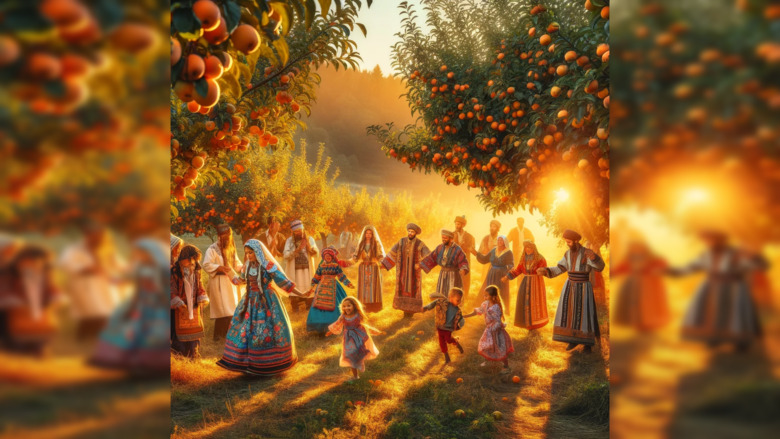
Deuteronomy 26:1-11
The Book of Deuteronomy, specifically in verses 26:1-11, introduces a unique and meaningful tradition known as Bikkurim, or the First Fruits offering, to us. This ancient practice, which holds a special place in Jewish history and religion, symbolizes gratitude, connection to the land, and the importance of community. Let’s explore Bikkurim, its practice, and its significance.
What are the First Fruits of Bikkurim?
Bikkurim involves taking the first fruits of one’s harvest and offering them to God at the Temple. The offer wasn’t just any fruit picked from the trees. It consisted of the very first fruits, those that signaled the promise of the upcoming harvest. Farmers would select these earliest ripening fruits, mark them, and then carry them to Jerusalem as a token of gratitude.
The Joy of the Ceremony of Bikkurim
The ceremony of presenting the Bikkurim unfolded with detailed steps and rich symbolism. It started with the farmer acknowledging their arrival in the promised land, a land flowing with milk and honey. They would then recount the hardships the Israelites faced in Egypt. This results in a journey towards freedom, culminating in the acquisition of a fertile land. This recitation served to remember their past struggles, the journey their ancestors embarked on, and the fulfillment of God’s promises.
Following the declaration, participants handed the fruits over to the priests in a joyful ceremony filled with music and celebration. This act of giving served not only as a way to thank God for the blessings. It is also as a reminder of the community’s collective journey and their shared heritage.
The Significance of First Fruits of Bikkurim
Bikkurim transcended being merely an agricultural tradition; it embodied a profound expression of gratitude and acknowledgment of dependence on the divine for sustenance. By offering the first fruits, the Israelites expressed their appreciation for the land and its yield, recognizing that all blessings emanate from God.
Moreover, Bikkurim highlighted the significance of memory and storytelling in preserving a community’s identity. Through recitation and the act of offering, the Israelites connected with their history, ensuring the transmission of their ancestors’ stories of trials, faith, and triumphs through generations.
First Fruits of Bikkurim Today
While the original practice of Bikkurim has evolved over time, its essence remains alive in various forms within Jewish culture. Today, it serves as a reminder of the importance of gratitude, the value of our heritage, and the significance of community. It teaches us to appreciate the fruits of our labor, remember our past, and share our blessings with others.
The First Fruits of Bikkurim Today
Bikkurim, as outlined in Deuteronomy 26:1-11, is a beautiful tradition that encapsulates themes of gratitude, remembrance, and community. It reminds us of the importance of acknowledging our blessings, understanding our history, and contributing to our community. Through the lens of Bikkurim, we learn to appreciate the value of the first fruits of our efforts and the importance of giving back.














